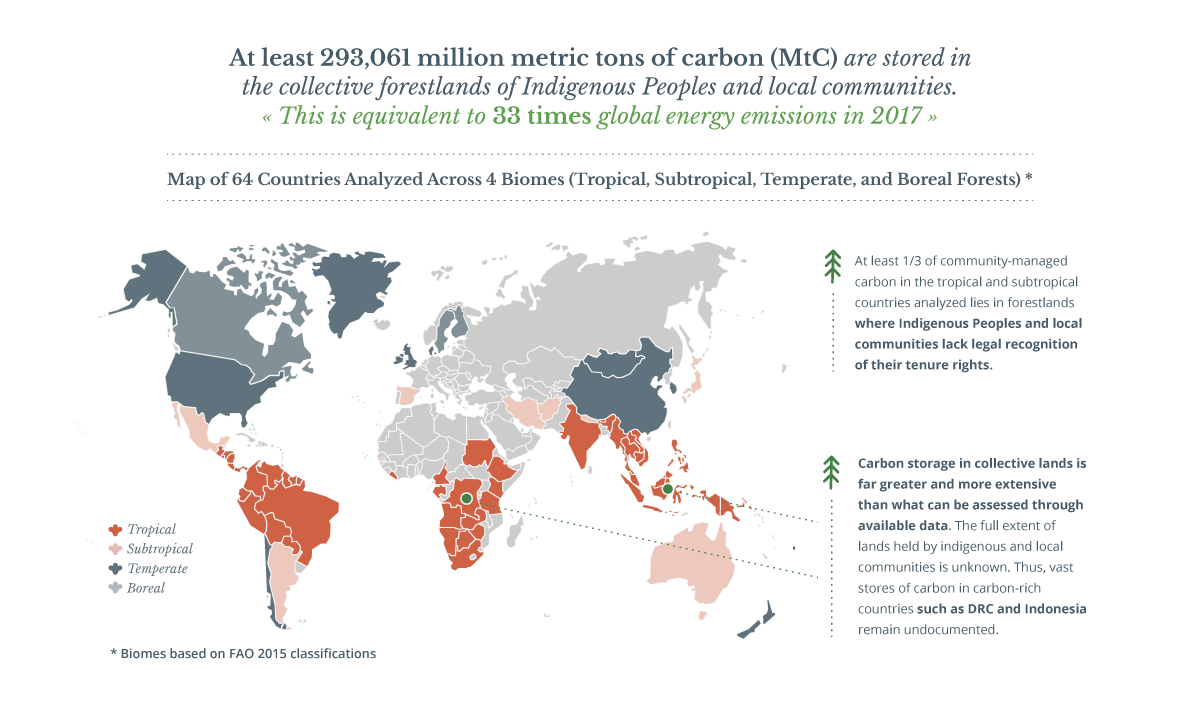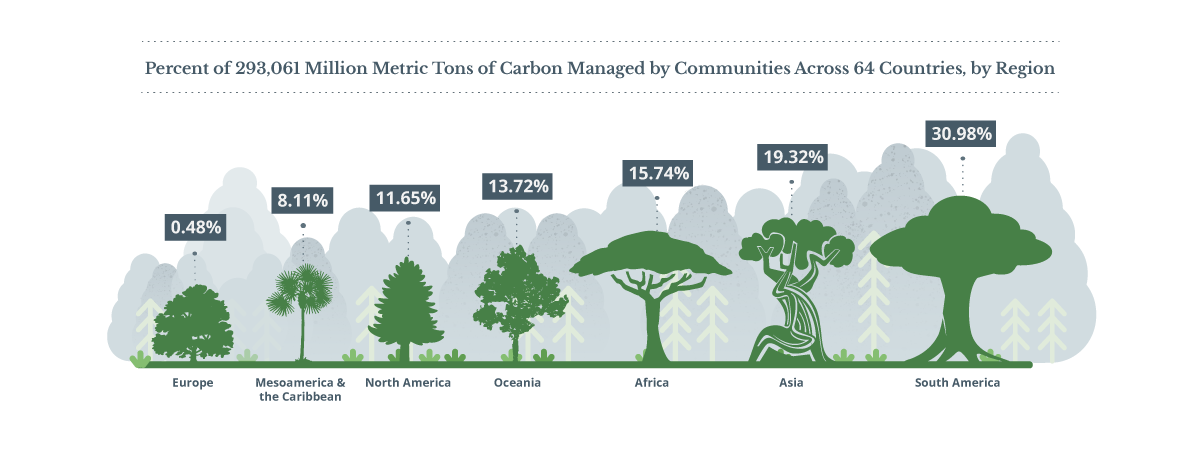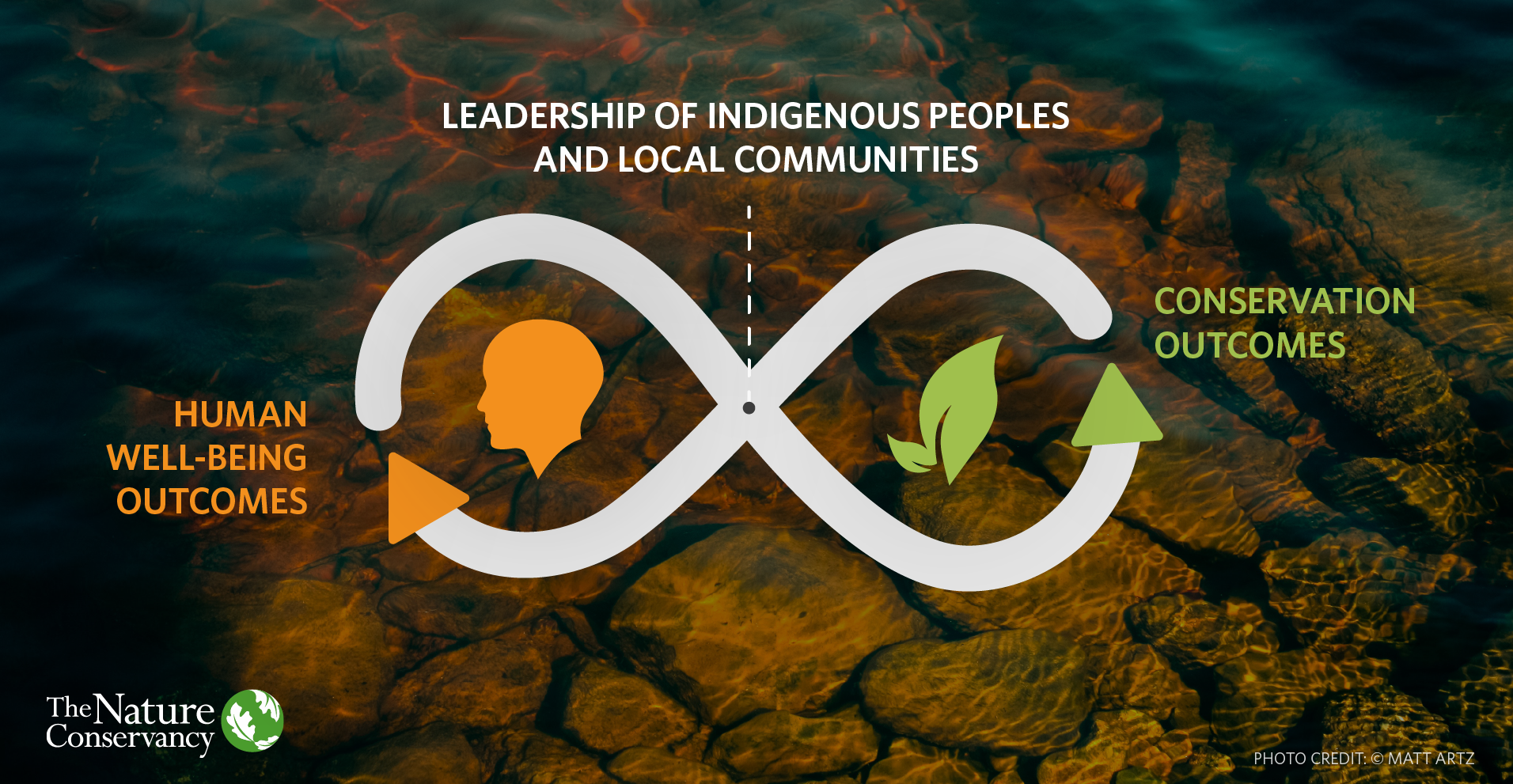
Recent research from Rights and Resources Initiative and partners show that lands managed by indigenous peoples and local communities hold five times more carbon than this 2016 estimate, equivalent to 33 times the global energy emissions of 2017.
New study shows indigenous peoples and local communities manage above and below-ground carbon equivalent to 33 times global energy emissions in 2017.

Indigenous peoples and local communities are among the Earth’s most important stewards. 18 percent of the world’s land is owned by or designated for indigenous peoples and local communities, and at least double that is claimed but not yet legally recognized. These lands also harbor up to 80 percent of the world’s biodiversity, and until recently were believed to hold 24 percent of the world’s forest carbon. However, recent research from Rights and Resources Initiative and other partners show this has been a gross under estimate. According to this global study, lands managed by indigenous peoples and local communities actually hold five times more carbon than this 2016 estimate, equivalent to 33 times the global energy emissions of 2017.

This new study not only measured aboveground carbon, but also below ground and soil organic carbon – accounting for nearly 65 percent and almost 90 percent of the total forest carbon managed by communities in tropical and non-tropical forest countries, respectively. This report presents the most comprehensive assessment to date of carbon storage in documented community lands worldwide and shows that shows indigenous Peoples and local communities are key to achieving climate outcomes through natural climate solutions. However, despite the importance the stewardship of these lands play in mitigating climate change, legal recognition of ownership remains low.

In light of recent reports by Rights and Resources Initiative, Woods Hole Research Center, World Resources Institute and others, indigenous peoples, local communities and governments came together at COP24 in Poland to engage in climate policy and work together to lobby for greater emission cuts and consideration of the power of natural land to be included and noted as carbon sinks . For the first time in history, these parties have created a working group that will seek to incorporate the knowledge and experiences that indigenous peoples and local communities have with climate change, and their efforts to adapt to it – a milestone in inclusion of their perspectives in solving the climate crisis.

Evidence shows that conservation and development initiatives are less likely to be successful and sustainable when they lack the active engagement and leadership of the people who have the greatest stake in their outcome and when such initiatives are not guided by traditional knowledge and values. Through the newly established Local Communities and Indigenous Peoples Platform Facilitative Working Group, the climate community is taking a step towards recognizing the key role that these groups play in mitigating climate change and to enhance their engagement in the UNFCCC process to integrate their perspectives into climate change policy and action.
To read more about this new research, click here: https://rightsandresources.org/en/blog/gcas2018/#.XBOn8c9KjoD
Preview photo credit: © Kevin Arnold